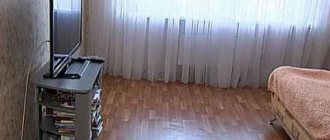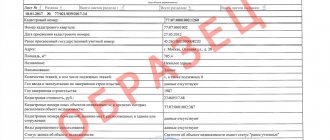From the point of view of the law, the most effective way to move into an apartment in the event of acute conflicts is a statement of claim for moving into a residential premises. At the same time, having the right to use housing does not always depend on the right to housing itself. Not only the owner, but also the employer can file such a claim. And also family members. If someone creates obstacles to moving into an apartment/room/house. Going to court with a claim to move in will help solve the housing problem. After all, a court decision can also be enforced by force.
Filing a claim for relocation does not require special knowledge. Therefore, you can draw up the document yourself. The main thing is to present the actual circumstances in detail. Carefully study the recommendations presented below, read the example of a claim. You can ask a housing dispute lawyer for clarifying questions.
:
Statement of claim for moving into residential premises
When disputes arise about moving in
Judicial and legal practice lists frequently occurring conflict situations between citizens regarding cohabitation and operation of real estate:
The owner of the apartment is not allowed into the rooms. This happens when relatives, friends, or acquaintances of the ex-wife who have a residence permit stay in the house, if the apartment after its acquisition remains occupied by the previous owner's registered residents, or if the room is rented out (users do not allow free access to the apartment by the owner).- The owner of part of the property is not allowed into the apartment. Other co-owners or temporary residents who have received the prerogative of exploitation under a lease agreement can create barriers to visiting and using the residential area.
- The person registered in the house is not allowed into it.
In the latter case, before filing a claim to move into a residential premises, the applicant is advised to make sure whether he has legal grounds for registration and whether they are relevant. A striking example is the case when a person serving a sentence returns from prison to his previous registration address, and other people who have bought real estate already live there.
What situations are exceptional?
Important! It is necessary to note a number of exceptional cases of occupancy of owners and other persons:
- Minor residents. The placement of children occurs automatically, subject to the submission of an appropriate application by the parents;
- By warrant. According to these documents, Soviet citizens were previously moved into housing (under the USSR). However, these documents are still valid today. An alternative to these documents today is rental agreements;
- Under a social tenancy agreement. Based on this document, move-in occurs unconditionally.
Who has the legal right to move in?
Preference for moving into municipal housing is primarily given to the citizen (tenant) with whom the municipality has entered into a social tenancy agreement. According to Article 70 of the Housing Code of the Russian Federation, the tenant has the right, with the approval of the owner, to accommodate members of his family in the apartment. Moreover, the placement of minor household members does not require the consent of the owner.
If the property is privately owned, then a different settlement algorithm applies. The right arises on the basis of ownership of the living space or part thereof, and tenants can also live in the house under a rental agreement.
If the matter concerns privatized space, then the legal basis for its use by persons who have written a refusal to participate in privatization should be taken into account.
Statute of limitations
According to the general rule established by Article 196 of the Civil Code of the Russian Federation, the statute of limitations for filing claims is three years.
However, claims for moving in and eliminating created obstacles in the use of living space do not have a clear statute of limitations due to the ongoing nature of housing legal relations.
Article 208 of the Civil Code clearly stipulates that the statute of limitations is not applicable to the owner’s claims if they are based on Article 304 of the Civil Code and are aimed at eliminating his violated housing rights.
Procedure for moving into residential premises
The procedure may look different depending on a number of factors:
- If the property is owned by the municipal government, then a special procedure for moving into the residential premises applies. Initially, there must be a legal justification - the conclusion of a social tenancy agreement. Members of his family have the right to live in rooms in addition to the tenant. After the parties sign the agreement, it specifies the persons moving in with the tenant. The owner of the room issues a reference permit for registration and check-in. Only after this the tenant and his family have the right to obtain registration.
- To access and use a privately owned home, it is necessary to obtain the consent of all co-owners. If one of them expresses a categorical refusal, then the court does not have the right to recognize it as unlawful even if there is no motivation for such a denial. It is worth noting that the prerogative of a minor owner of a share does not provide a guarantee of preferential use of his parents’ house.
The authorities have the right to refuse occupancy if the area of the home is small (the area per family member is less than the norm when moving in a new tenant). However, there is an exception to the rule regarding the employer’s spouse and young children.
Features of moving into municipal housing
The keys are issued as soon as the parties sign the rental agreement for the property. Residents move in, in this case, strictly according to the list specified in the contract. That is, in order to move other people into the housing, previously moved-in residents must give consent to this.
A person retains the right to move into housing even if he is absent for a long time. You can file a claim if a citizen legally residing in the home is being evicted. Family members are evicted by court decisions.
The fact of a long absence from municipal housing cannot be used to evict a citizen.
Grounds for moving in
The basis for moving into residential premises is regulated by the norms of housing, civil and family legislation of the Russian Federation. To resolve the issue regarding apartments, you must provide documentary evidence of the legality of your claims.
For a short-term stay, a citizen will need to present the following package of paper support:
- agreement on rental, transfer of use, lease agreement;
- statement from the person providing the apartment;
- written agreement.
Permission can be from the owner when moving into a private property, from the management company or trustee bodies if you want to live in a house under the control of these institutions. Consent from the enterprise, company, manager when settling in an office room.
To gain access and the opportunity to live in municipal housing, the following documents will be required to move into a residential premises:
- A warrant providing the prerogative of settlement. It is issued by authorized organizations - ekzhilfond, department of housing policy.
- Agreement on employment - social or on a paid basis.
- Extract from the resolution of the executive committee on the implementation of guardianship.
- Consent of the tenant and other residents when moving in relatives.
Parents who have lost their ability to work have the right to live with their children in a state house, regardless of the square footage per person.
Moving citizens into privately owned residential premises will require the following documentation:
- Ownership contracts depending on the basis for obtaining real estate - purchase and sale, exchange, donation, by right of rent.
- A residential agreement with an obligation to care for the owner. Valid if the tenant and owner can live in different rooms.
- Certificate of successor to the estate.
- Lease agreement.
- Approval from the property owner to move in close relatives.
In the listed situations, the authorized agency for registration of residents will need to fill out an application to move into the residential premises.
Recognition as a family member in court (what evidence will the court take into account)
I am publishing this article as a continuation of the previously presented material on the main mistakes that can be made when applying to the court for recognition as a family member. The first part of the material describes the features of the proceedings in a special order, and provides recommendations as to who should be an applicant in this category of cases and who should be an interested party. And most importantly, errors are indicated in which the court may not consider the application, and if it does, then there may be no practical benefit from such a decision. You can read the first part of the article at the following link:
https://zakon.ru/blog/2021/1/18/priznanie_chlenom_semi_v_sudebnom_poryadke_glavnaya_oshibka
In the second part of the article, in turn, I will talk about the circumstances that the court takes into account when considering applications for recognition as a family member. I will tell you what circumstances are subject to proof, and with the help of what evidence they can be confirmed.
Before moving on to the evidence, I will indicate the main articles that are applied when considering this category of cases, and which, in fact, constitute the legal basis of the case.
By virtue of Art. 31 of the Housing Code of the Russian Federation, family members of the owner of a residential premises include his spouse living together with this owner in the residential premises belonging to him, as well as the children and parents of this owner. Other relatives, disabled dependents and, in exceptional cases, other citizens may be recognized as members of the owner’s family if they are settled by the owner as members of his family.
In other words, other close (for example, brothers and sisters) and distant relatives, and in exceptional cases (subject to a number of conditions specified below in the article) other citizens who are not related to the owner, but live together with him.
Valuable information that is taken into account by the courts when considering cases of recognition as family members is contained in paragraph 11 of the Resolution of the Plenum of the Supreme Court of the Russian Federation dated July 2, 2009 No. 14 “On some issues that arose in judicial practice when applying the Housing Code of the Russian Federation” by members of the owner’s family living premises may be recognized as other relatives regardless of the degree of relationship (for example, grandparents, brothers, sisters, uncles, aunts, nephews, nieces and others) and disabled dependents of both the owner himself and his family members, and in exceptional cases other citizens if they are moved in by the owner of the residential premises as members of his family.
To recognize the listed persons as members of the family of the owner of the residential premises, it is necessary not only to establish the legal fact of their move-in by the owner into the residential premises, but also to clarify the content of the owner’s will to move them in, namely: whether he moved the person to live in the residential premises as a member of his family or the premises were provided for residence on other grounds (for example, for free use, under a rental agreement). The content of the owner's will in the event of a dispute is determined by the court on the basis of explanations of the parties, third parties, testimony of witnesses, written documents (for example, an agreement on moving into a residential premises) and other evidence (Article 55 of the Code of Civil Procedure of the Russian Federation).
Thus, one of the main circumstances to be clarified is the will of the owner: in other words, with what intentions the owner moved persons into his home, recognition as family members in court is required.
The legislator’s logic is as follows: recognition by family members entails certain legal consequences. In particular, family members receive the right to live freely in the owner’s home. The court must make sure that the owner is aware of the legal consequences of recognizing persons living with him as family members.
In fact, for this category of disputes, all evidence is important to confirm that people living together are not just neighbors who, by chance, find themselves under the same roof, but a full-fledged family.
Let's talk about the signs that characterize relationships as family:
- moving into the apartment as family members;
- living together on a permanent basis (in this block you can describe how long the family has been living together; how many rooms are in the apartment/house, which room does each family member live in);
- good family and respectful relationships between family members;
- the presence of a general budget (it is worth describing how the family budget is formed. Which family members work and which do not);
- the presence of a common household/maintaining a common household (surprisingly, the court may even ask questions about whether family members shop and eat together or separately);
- distribution of responsibilities between family members (in this block you can describe who is responsible for the financial support of the family, who is responsible for raising children, preparing food, etc.).
Evidence may include:
- written and oral explanations from family members themselves;
- witness testimony (neighbors who know family members can be brought in as witnesses). The court may ask them questions about:
— how long have the witnesses known the family;
-how witnesses can characterize relationships within the family;
-What composition does the family live in?
I recommend that along with the application, you initially submit to the court a written statement from a witness in which he sets out the facts known to him and asks to be summoned to court to confirm these facts. In itself, such a written statement will not have the force of evidence for the court. It is attached so that the court in the future considers your request to call a witness justified and grants it.
- Receipts for joint purchases can be provided as proof of common household management.
- To confirm the fact of cohabitation, you can submit certificates from the school or other educational institutions where the children study, a certificate from the hospital stating that family members are attached to the clinic closest to their home, a certificate from the place of work if it is located in close proximity to the house . All this evidence will confirm that the family actually lives in the corresponding locality/district of the city.
To summarize, I note that the main thing that the court must verify is the fact of living together, joint housekeeping and the emergence of family relationships (based on mutual care and distribution of responsibilities) between family members.
In gratitude for the information provided, I ask you to subscribe to our YouTube channel, where a legal podcast is published every Sunday and a “question to a lawyer” section is published every Tuesday. Channel link: https://www.youtube.com/channel/UC05yJdlRTqBx0iPhX5S1esw?view_as=subscriber.
Or just type “Uzdiev and Partners” in a search on YouTube.
If you need advice, write to our email: [email protected]
Sincerely, Amy Maria Golmakova
Lawyer for legal work.
Legal regulation of moving in
Article 40 of the Basic Law of the state assigns preference for shelter to any person and guarantees its protection.
Norms of the Civil Code of the Russian Federation concerning the protection of the interests of residents and settlement procedures:
- Article 292 fixes the prerogatives of the owner’s family members for the unhindered use of home ownership, and also ensures the protection of housing preferences for minor children under guardianship during the alienation of real estate.
- Article 679 contains the unconditional preference of the tenant under a social tenancy agreement for the registration and residence of his children in the provided housing.
- Article 247 states the fact of ownership and use of property in shared ownership by agreement of the co-owners. That is, for a person to live, permission from other residents will be required.
- Article 304 establishes the possibility for the owner of real estate to make demands to eliminate violations of his interests (for example, restricting access to the house by relatives or tenants).
- Art. 558 establishes the possibility for persons previously staying and registered in the house to operate it after its implementation.
Article 70 of the Housing Code of the Russian Federation establishes the unconditional right of fathers and mothers to move their children under 18 years of age into apartments without obtaining mandatory permission from other users.
The termination of a marital relationship between the parents of children living in the household of one of them does not entail the termination of the prerogative to use real estate in the context of the rule of Part 4 of Article 31 of the Housing Code of the Russian Federation.
State duty amount
All requirements relating to the elimination of violations of the housing rights of citizens are classified as non-property. Therefore, such requirements imply the payment of a state duty in the amount determined by the Tax Code (clause 3, clause 1, article 333.19) - 300 rubles. per one stated requirement.
If the claim makes only one demand - to eliminate the created obstacles to the use of living space, you must pay 300 rubles. before filing a claim. If the second requirement is indicated - to move into housing, then you need to pay another 300 rubles. etc. according to each requirement.
If the plaintiff is exempt from paying the duty, this fact is indicated in the filed claim and the relevant supporting documents are attached.
The owner is not allowed into the apartment
A strange but common situation is when the owner is not allowed into the home. This happens as a result of conflicts between relatives or when renting.
Article 209 of the Civil Code of the Russian Federation assigns to the owner preferences in the operation, ownership and disposal of property belonging to him. The owner of the property by law has a guaranteed preference for exploitation. Therefore, if there are obstacles from other persons, the owner of the residential premises may move in only through the courts.
However, before going to court, it is recommended to use the following conflict resolution methods:
- File a complaint with the police department.
- Call the local police officer to record the offense. Perhaps a conversation with an employee will help resolve the issue. In any case, the district police officer will draw up a protocol of the call, a copy of which the applicant can receive. This document can be attached to the claim as evidence of an attempt to resolve the dispute peacefully.
- Calling the Ministry of Emergency Situations. They will help open the locks and the owner will be able to enter the home. To begin the procedure, you must present documents of ownership.
- Attract as many witnesses as possible who will subsequently testify at trial.
- Submit a written complaint demanding eviction.
It is necessary to file a claim in court for obstruction in the use of the apartment. And if those living in the rooms no longer have legitimate grounds for staying there, then indicate in the application a request for their eviction. If a positive decision is made, the court office will issue a writ of execution, according to which the applicant applies to the FSSP.
The bailiff, in the presence of law enforcement officers, will settle the owner in his room according to the act, and will evict people who have lost the right to exploit.
If the violators decide to resettle the owner again, then the norms of Article 17.15 of the Code of Administrative Offenses of the Russian Federation will be applied to them - a fine of 1 thousand rubles. up to 2.5.
How to file a claim
The claim is drawn up in any form, and must be in writing (you can write or print it).
You need to try to present all the facts sequentially:
- on what basis were the tenants moved in (by rent or ownership);
- who uses the living space and on what basis at the time of filing the claim;
- how the departure from the disputed apartment took place;
- what obstacles exist for settlement;
- when there was an attempt to check in;
- Why can't this be done without court intervention?
All statements must be supported by documents or testimony of witnesses. In the second option, their details are indicated in the application and a petition for their involvement is attached. It is imperative to indicate what facts each of them can confirm.
Quotes from articles of laws and links to them are not required. The judge will determine which standard to apply during the consideration of the dispute. There should be enough copies of the application and documents to be sufficient for all participants in the meeting, including third parties.
Not allowed into the apartment based on registration
All accommodation preferences are determined by a number of factors:
- The housing is privately owned or owned by the municipality.
- The basis for the claims is registration as a relative with the current owner of the home, a rental agreement or free operation, without a contract, or during the period the apartment is owned by the state.
If the applicant has an extract from the register about a valid registration, then moving into the residential premises is possible through the court.
However, before filing a claim, it is recommended to realistically assess your own situation. Upon receipt of an application to exclude obstacles, the owner of the house will most likely file a counter-application to recognize the applicant as having lost the preference for the operation of real estate and the liquidation of registration.
Help from a lawyer in moving into an apartment in Yekaterinburg
- Pre-trial settlement on the issue of moving into the apartment. This stage takes place before filing a claim and consists of an attempt to resolve the issue with the opposing party, using all kinds of legal means of influence. It is worth noting that the participation of a third party (a non-conflicting party) often contributes to a rational and constructive dialogue, the result of which is the achievement of a compromise and solution to the problem.
- Preparation of a statement of claim for occupancy. At this stage, the lawyer develops and agrees on the legal position with the client, develops a list of subsequent actions, identifies the necessary evidence to substantiate the chosen position, and, if necessary, facilitates the search and collection of evidence. The end result of this stage is filing a claim with the court and tracking the appointment of the date and time of the court hearing.
- Upholding the rights and legitimate interests of the principal during the court hearing. Careful preparation for the hearing is the key to success in the trial. At this stage, petitions are being prepared to call and question witnesses regarding the defendant’s obstacles in your voluntary occupation of your living space, petitions are being prepared to request additional materials, a response to the defendant’s objection is being drawn up to include evidence in the case, a court hearing situation is being simulated in the presence of the principal in order to psychologically prepare for all sorts of questions and provocations from the opposite side
- The personality of the defendant and his representative is studied, as well as the manner in which the trial is conducted by a particular judge. The knowledge gained allows us to work out a list of questions for the defendant, predict the opponent’s arguments, taking into account which counter-arguments are developed.
- Execution of a court decision. And most importantly, our housing lawyer will not leave you alone with the court decision. Enforcement proceedings can also be carried out with our help, which is an additional guarantor of respect for your rights (read on the issue of initiating enforcement proceedings).
Our housing lawyer will resolve your housing conflict and move you into a living space that you have every reason to claim. You are required to call and start the procedure, because time is pressing, the longer you rent an apartment, the more unplanned expenses appear in your family’s budget. With our help, moving into an apartment will be faster and without unnecessary hassle.
Statement on the fact of obstructing the use of residential premises
When choosing a judicial procedure to protect violated rights, it is necessary to draw up a statement.
The document contains the following information:
- Full name of the court to which the appeal is sent.
- Personal data of participants in the proceedings.
- Circumstances of the case. All facts of offenses, the place and time of their commission are listed here. Don’t forget to write down the attempts made to resolve the conflict pre-trial. Provide evidence of seeking assistance from human rights authorities.
- Description of applications. This includes all accompanying papers - an extract from the Unified State Register, a duplicate of the passport and protocols for calling the local police officer, a refusal to initiate a criminal case.
The appeal is filed with the district court at the defendant’s place of residence. A state duty of 300 rubles is paid, since it does not contain claims of a property nature.
During the proceedings, the owner undertakes to prove the fact of illegal entry into the residential premises when it actually exists (fraudulently through unscrupulous realtors, in the presence of threats of violence and putting pressure on the owner), creation of obstacles to open access, attempts to peacefully resolve the dispute.
Determination of jurisdiction
A claim filed to eliminate obstacles to the use of housing and occupancy is transferred to the district court on the basis of Article 24 of the Code of Civil Procedure. It is necessary to choose a court at the place where the defendant lives, which corresponds to the general rules of jurisdiction (Article 28 of the Code of Civil Procedure).
In the practice of the courts, there have been cases when cases were sent according to jurisdiction to the court where the disputed real estate is located, or the claim was returned, making reference to exclusive jurisdiction (under Article 30 of the Code of Civil Procedure), which is subject to application to such disputes.
But such actions by higher courts were recognized as unlawful, rightfully pointing out to the courts that made a mistake that exclusive jurisdiction should be used in claims demanding recognition of the right to housing, but not in any case when there is a requirement to remove obstacles to the legal use of housing.
Features of the resettlement of citizens by decision of the judiciary
After considering the case, the owner of the rooms usually receives a court decision to move into the residential premises.
However, a court decision alone is not always enough for its actual implementation. The winning party must perform a number of actions:
- receive the original writ of execution;
- draw up an appeal to initiate enforcement proceedings;
- After the start of proceedings, wait for the forced eviction procedure.
After the bailiffs complete their work, the document is returned to the applicant.
Consideration of the claim on its merits
When considering a dispute, the court must establish whether the parties have rights to housing and whether real obstacles to move-in are being created. If the circumstances set out in the claim are confirmed, a decision will be made to move in.
Please note! The standard period for consideration of such applications is 2 months. But in practice, the term is directly related to the appearance of the parties, the presence and completeness of the evidence base.
As soon as the claim is considered in favor of the applicant, he is given a writ of execution. A decision made not in the interests of the applicant is subject to appeal. To do this, an appeal is filed.
Forced move-in
Forced occupancy is a measure to ensure unimpeded access to the applicant's home. These measures are carried out by a FSSP employee. First, the specialist sets a deadline for the voluntary fulfillment of the obligation, sends notices of fines and forced placement.
The procedure is carried out in the presence of witnesses. An act is drawn up. The document contains a warning about the prohibition of obstruction.
Then, over the course of 2 months, the bailiff conducts scheduled and unscheduled inspections of the fulfillment of obligations. If there are violations, administrative measures are applied to the defendant.
Thus, housing disputes regarding the use of a house are resolved in court if it is impossible to resolve the conflict peacefully. The applicant must prove the fact of restrictions on visiting. Witness testimony, photographs, videos, and district police reports are suitable for this.






